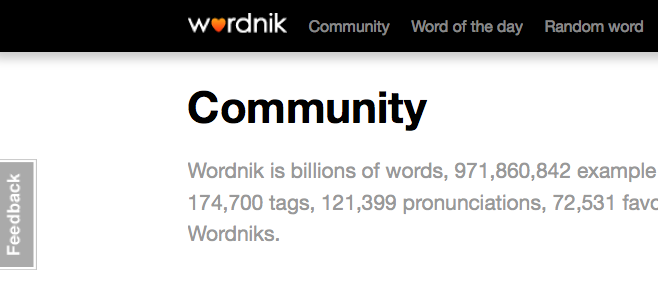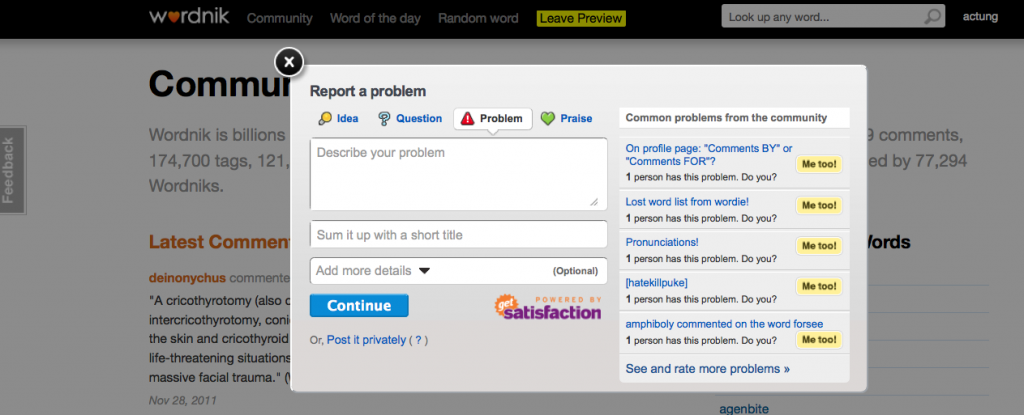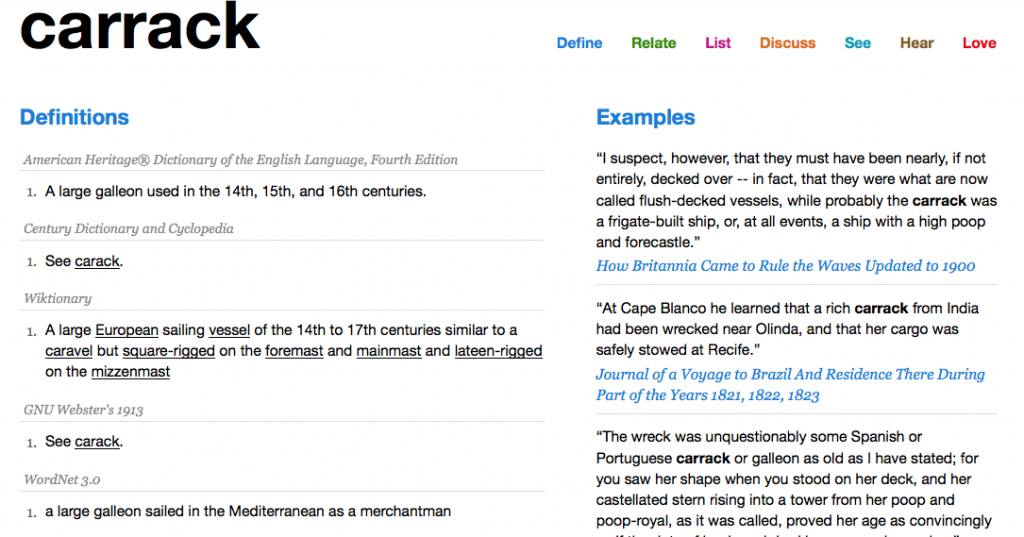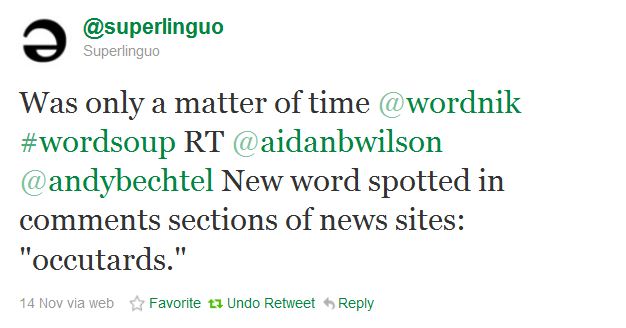If you’re a developer and have seen the Wordnik Developer documentation, you might have noticed some links to raw JSON like this. Behind all that lovely notation is the Swagger API framework. We needed to solve some recurring sources of pain at Wordnik, and we knew how our needs were going to evolve, so we took a proactive step and built Swagger.
First, our documentation was really tough to keep up to date. When you’re in a situation where your capabilities precede your documentation, you can end up in a tough spot: Your users are unable to benefit from the tools you’ve worked so hard to build, or they end up using them the wrong way. Both are bummers for developers, who typically have many choices and should get your best efforts.
As we made updates to our API, it got harder and harder to keep our client libraries current. Add an API, modify all your drivers. As with documentation, this is an unnecessarily tedious thing to do. Our developer community helped out tremendously by open-sourcing a number of different libraries, but this led to “driver drift”. Our developers shouldn’t have to worry about writing our code! It’s our job to make it easy.
Next, we needed a way to create APIs for our partners. Guess what? The same two previous issues apply. More busywork for us.
Finally, we needed a zero-code way to try out our API. A real sandbox — not white papers, video tours, slide decks. A full-featured mechanism to call the API without monkeying with code.
So that was our goal. The outcome is what we now call Swagger. So how does this thing work? Should you use it?
Our server produces a Resource Declaration. This is like a sitemap for the API — it tells what APIs are available for the person asking. Who is asking? Well, if you pass your API key, the Swagger framework shows what is associated with that principal! That keeps sensitive APIs from being exposed. It also gives you a way to let people try out new features in an incremental fashion. It’s completely pluggable and we provide some simple, demo implementations.
Follow one of the paths to an API and you get all the operations available to the client, an operation being an HTTP method + a resource path. Look further and you’ll see something useful — the input and output models! Now you know what you’re going to get before you call. It’s a contract between your server and the client.
So that’s all fine and dandy but what’s the use? How do we address the pain points from above?
Well, once you know both how to call an API and what you get back, you can do some interesting things. First, how about a sandbox? There’s really not much to it — you can see it in action at petstore.swagger.wordnik.com and developer.wordnik.com. Neat! Simple sandbox, calls your API exactly how you would from your code. You can try out those different levers to calling an API without editing your source. Heck, even your boss can try out the API!
Next, how about clients? Well, we wrote a code generator which creates clients in a number of languages. Don’t like our codegen style? We’re not offended! It’s template driven. Make your own templates, or even your own code generator. Best of all, change your API and rebuild your client libraries. It’s all *automatic*. And for those folks who want special APIs? Build them their own client by passing their API key in. Really, it works.
Finally, documentation. Wasn’t that the first point in this post? Yes! If you look in one of our sample Swagger apps, you’ll see how this is accomplished.
See that code? The documentation is built in. This function defines the GET method of the /findByStatus path. There is a required query param with allowable values of “available, pending, sold”, with a default value of “available”. It returns a Pet object. Best of all, it serves as both the input declaration as well as the documentation system. See here:
http://petstore.swagger.wordnik.com/#!/pet/findPetsByStatus_GET
All of Swagger is open-source. Check out swagger.wordnik.com for a list of repos. More on the Swagger roadmap in an upcoming post!










